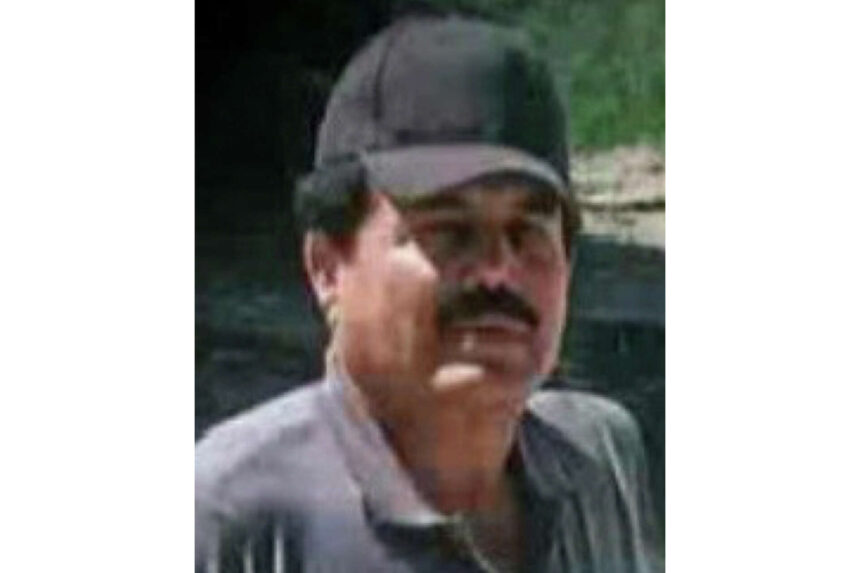Ismael ‘El Mayo’ Zambada: Mexican drug lord arrested in US
July 26, 2024 — In a remarkable operation, Ismael “El Mayo” Zambada, the notorious leader of Mexico’s Sinaloa drug cartel, was apprehended by U.S. federal authorities in El Paso, Texas. This arrest captures a significant moment in the ongoing battle against drug trafficking and organized crime, given Zambada’s standing as one of the world’s most influential figures in the drug trade.
Background on Zambada and the Cartel
Zambada, aged 76, co-founded the Sinaloa cartel alongside Joaquin “El Chapo” Guzman, who is currently serving a life sentence in the United States. The cartel, which has been a dominant force in the narcotics trade, is particularly notorious for its role in the fentanyl crisis that has devastated communities across America.
In February 2024, U.S. prosecutors charged Zambada with conspiring to manufacture and distribute fentanyl, a synthetic opioid far more potent than heroin. This charge comes as officials continue to grapple with the implications of the opioid epidemic, which has claimed countless lives in the United States.
Arrest Details
The details surrounding Zambada’s arrest reveal a complex operation spearheaded by the Homeland Security Investigations (HSI) and the FBI. Reports indicate that Zambada was misled into boarding a private aircraft under the guise of inspecting clandestine airstrips in southern Mexico. Instead, he was flown directly to Texas, where he was detained upon arrival.
Alongside Zambada, Joaquin Guzman Lopez, the son of the infamous “El Chapo,” was also arrested. According to statements from the Justice Department, these arrests signify a major blow to the Sinaloa cartel, which has long been considered the principal supplier of narcotics to the U.S. market.
Reactions and Accountability
In response to the arrests, Mexico’s Security Minister Rosa Rodriguez confirmed that while Mexican authorities were informed, they played no role in the operation. Mexican President Andres Manuel Lopez Obrador has urged the U.S. government to maintain transparency regarding the circumstances of the arrests.
U.S. Attorney General Merrick Garland emphasized the urgency of the situation, noting, “Fentanyl is the deadliest drug threat our country has ever faced, and the Justice Department will not rest until every single cartel leader, member, and associate responsible for poisoning our communities is held accountable.” He reiterated the broader implications of Zambada’s operations and their impact on American lives.
A Powerful Criminal Legacy
The Sinaloa cartel’s influence under Zambada has been profound, with the cartel being known not only for its drug trafficking but also for its attempts to establish legitimate business fronts. According to the U.S. State Department, Zambada owns several businesses in Mexico, including real estate, a bus line, and a large dairy company.
Despite the recent arrests, the fight against drug trafficking continues, with U.S. authorities previously offering a reward of $15 million for information leading to Zambada’s capture. His previous evasion of capture highlights the dangerous and unpredictable nature of the drug trade in North America.
Upcoming Legal Proceedings
Following his arrest, Zambada pleaded not guilty to a variety of serious charges, including drug trafficking, murder, and money laundering. His legal representation has indicated that his capture was not voluntary, asserting that Zambada was brought to the U.S. against his will. An initial hearing is scheduled to take place next Wednesday at the El Paso magistrate court.
| Detail | Information |
|---|---|
| Name | Ismael “El Mayo” Zambada |
| Age | 76 |
| Location of Arrest | El Paso, Texas |
| Charges | Fentanyl conspiracy, drug trafficking, murder, money laundering |
| Next Court Date | Next Wednesday |
This monumental arrest signals a critical juncture in the ongoing war against drug trafficking and the complex networks that facilitate it. The future legal proceedings surrounding Zambada will likely attract significant attention, as his conviction could have widespread implications for the Sinaloa cartel and the fight against opioid trafficking in the U.S.




